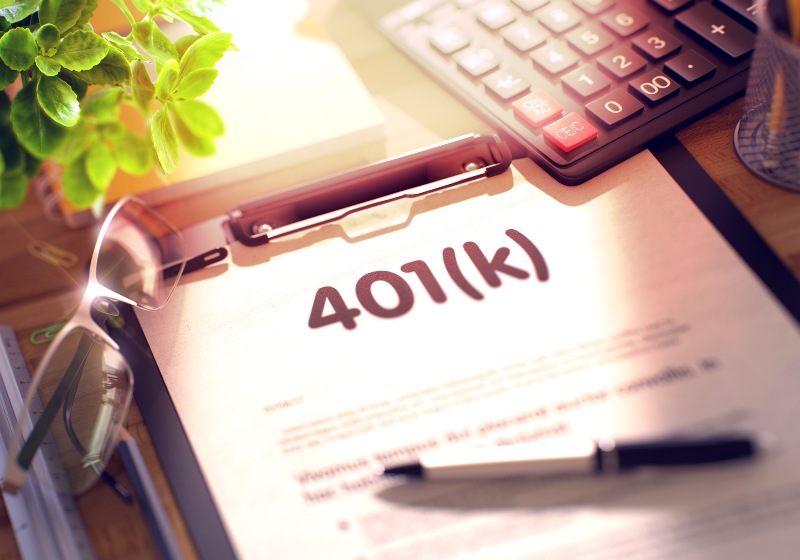Knowing the difference between pension vs 401k can help you plan and decide better for your retirement fund. Read on to learn more about these two options.
RELATED: 7 Ways on How to Invest For Your Retirement
Pension vs 401k | Defined Benefit Plan vs Defined Contribution Plan
What Does Pension Mean and How Does It Work?

Pension is also known as a defined benefit plan. In this type of plan, you're guaranteed to receive a secure amount every month once you retire.
This funding will last for the rest of your life. Depending on the plan, a part of your pension may still carry on for your beneficiary after you die.
Since the amount is fixed, you'd already know how much to expect for your monthly retirement income. This can let you plan your budget accordingly.
Your company is in charge of providing and funding this plan. Generally, they require a minimum number of years in service before you become entitled to its benefits.
Your employer should abide by the rules set by the Labor Department. These rules indicate how much your company must set aside for your pension plan.
Keep in mind that not all employers provide pensions, but government agencies normally do. Additionally, most pension plans are taxable. However, some government and military pensions are free from taxes in cases wherein the employee was harmed while on duty.
What Is the Average Pension Payout?

Usually, there's a formula to find out the amount of your pension income, but there's no standard one being used. This formula is commonly based on your compensation and job tenure.
When computing for your pension, employers normally use the average of your highest compensation within two to five consecutive years.
For instance, your highest income for three consecutive years were $58,000, $60,000, and $62,000. In this scenario, the average amount is $60,000.
Afterward, this figure is multiplied by a pension factor. Usually, this ranges from 1.5% to 3%. In addition, your tenure of employment is also a factor.
If your retirement benefit has a 1.5% pension factor, just multiply it by your average salary which is $60,000. Then, multiply it by your tenure, which is for example 30 years, giving you an annual pension of $27,000. With this, you'll receive a pension of $2,250 per month.
Last 2019, the average pension benefit of older adults aged 65 or older from a private company was $10,788 annually.
Meanwhile, the median benefit received by individuals from the federal government was $27,687 per year. This is the highest average pension. This is followed by adults from local or state government, with a median pension amounting to $22,662 a year.
The third highest average benefit was from the military pension at $21,747, followed by the railroad pension at $17,231. Meanwhile, members who received funds from veterans pension received an average of $12,009.
What Is 401k and How Does It Work?

On the other hand, 401k is a form of a defined contribution plan. Unlike a pension, 401k does not assure you a fixed monthly income. Instead, you assign an amount of your salary to your retirement fund, and your company may match this contribution.
Then, you may decide to invest these funds in stocks, bonds, or mutual funds. Your account balance may vary, depending on the market situation.
There are two kinds of 401k — traditional and Roth. With the traditional one, the portion of your salary that you decided to save is exempted from your taxable income.
Meanwhile, if you go with a Roth 401k, you make contributions after taking out the taxes from your salary. However, since you'll already pay taxes, you can make tax-free withdrawals once you retire.
A 401k retirement plan has limits when it comes to your yearly contributions. For 2021, individuals can contribute a maximum of $19,500 a year. For adults aged 50 or older, they may add $6,500 to catch up, for a total of $26,000 per year.
What if you change your job? You may do a rollover by shifting your funds from your previous company to an individual retirement account (IRA). You may also transfer it to your new company as an alternative.
RELATED: Retirement Planning For The 21st Century
How Much Will I Get if I Cash Out My 401k?

Luckily, there are calculators available online to help you determine your funds when you retire. They consider your retirement age, savings, and employer matching contributions.
To maximize your retirement income, avoid incurring 401k penalties as much as possible. There are fees if you withdraw your funds either too early or too late.
If you get your balance before you reach 59 and 1/2 years of age, there's an early withdrawal charge. You'll have to pay 10% as a penalty on top of income tax. However, if you leave your employer at age 55 or older, there's no need to pay this penalty.
When investing, study first the cost of a particular type of fund. Keep in mind that you'll hold your retirement investments for a long period, so remember to keep your costs down. Choose a fund with a lower cost to help your funds increase faster.
To help you figure out the cost, read the fee disclosure statement that comes with your 401k plan. It contains details about investment options as well as their expense ratio.
Is It Better to Have a Pension or 401k?

Some people prefer a pension plan since they don't have to shell out money of their own. You can be assured that you'll receive a fixed amount per month in your lifetime. Your source of income is certain and stable, making you worry-free about your assets decreasing.
Meanwhile, some opt for a 401k plan since they want to manage their own money. However, remember that if your savings aren't enough, you might run out of funds. The amount that you'll receive will be based on your contributions and their performance in the market.
A 401k plan can be ideal for self-employed individuals. In addition, companies can also benefit from this plan since its maintenance and funding are more affordable.
The good news is that you can have both pension and 401k plans. However, pension plans are becoming rare. This is mostly because of its cost and less flexibility for employers.
If you have to choose between the two, consider these factors before coming up with a decision:
- Tenure of employment: With a pension plan, the amount that you'll get will be based on your compensation and duration of service. With a 401k, you can already set up your funds as early as your first day of work.
- Level of control: You won't have the power to run your investments in a pension plan since your employer manages it. In 401k, you're in control of your funds.
- Transferability: If you don't meet the minimum years of service, you might lose your pension. Meanwhile, if you change jobs, you can have your 401k with you.
- Stability: A pension plan provides a steady monthly income once your retire. On the other hand, a 401k plan relies on your investments' performance.
- Growth: Your pension offers you a fixed amount per month. Meanwhile, if your investments in a 401k plan yield high returns, your funds can increase faster.
To make a better choice for your retirement fund, you have to weigh the pros and cons between pension vs 401k. However, once you've retired, what should you do next? Watch this video by TD Ameritrade to get ideas on how you can use your savings:
Between pension vs 401k, choose the one that can cover all your needs once you leave the workforce. Start thinking about these options so you can have a safe and secure retirement.
Pension vs 401k: Which do you think is better to have? Please share your thoughts with us in the comment section below!
Up Next:
- Senior Discounts and Perks You Can Enjoy When You Turn 50
- The 10 Main Health Issues of Retirees
- Testicular Cancer Survivor, Matt Ode, Shares His Story of Hope, Purpose, and “Winning the Day” [PODCAST]
Calling all Health Buffs! If you’ve got the gift of keeping healthy and sharing this knowledge through writing, click here if you want to write for us.
Please stay connected with us on Facebook, Twitter, Instagram, and Pinterest, and make sure to join our community of healthy living and minded people here.
Trending
Get Updates
SIGN UP FOR OUR NEWSLETTER TODAY

Tongue Color | 7 Scary Tongue Color Meanings

Lecithin Benefits and Side Effects: 10 Surprising Truths

Related

Tongue Color | 7 Scary Tongue Color Meanings

